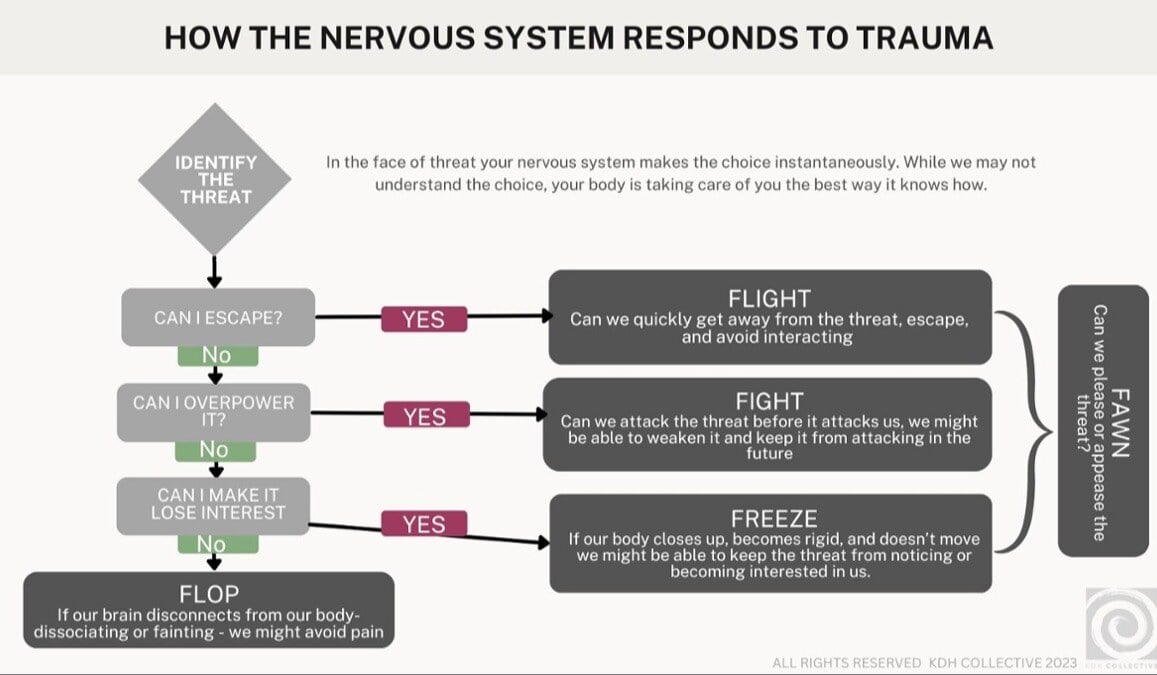Unveiling the Power of Trauma-Informed Therapy
Let's explore the impact of Trauma-Informed Therapy in addressing mental health issues and understanding trauma responses in relation to our client's...

Here’s a question to consider—Are you a therapist’s therapist? Do you advocate for other therapists, and do you offer beneficence when the opportunity presents itself? An even better question to ponder--What do we owe each other when it comes to our professional identities and connections?
Thankfully, the American Counseling Association’s Code of Ethics addresses this question directly,
“Professional counselors recognize that the quality of their interactions with colleagues can influence the quality of services provided to clients. They work to become knowledgeable about colleagues within and outside the field of counseling. Counselors develop positive working relationships and systems of communication with colleagues to enhance services to clients.”
Therapists are given the directive to engage the community and to learn about the services being provided to facilitate appropriate and adequate referrals. This lends itself to other ethical demands around practicing with scope. No therapist can treat all presenting concerns; therefore, it is essential that therapists get to know other practitioners who are trained in areas unfamiliar to them. This means that therapists need to make a concerted effort to communicate, collaborate and consult with others in their community.
But let’s go back to my question. It stems from a trend I have observed in session with new clients. During my intake process, I make it a point to ask clients if they have been in therapy, and If so, what worked and what didn’t? This, in my experience, can offer great clinical insight to a client’s motivation, experience, and conceptualization of the therapeutic process. It can also prompt clients to share horror stories from their therapeutic past. Disclosures would sometimes include feeling invalidated or unheard, having appointments cancelled frequently, and even being “ghosted” by their former therapists.
How are you supposed to process negative feedback about other therapists? That chapter wasn’t included in any of my textbooks, as far as I can remember. I mean, it’s basic Counseling 101 to acknowledge the unfortunate nature of that situation, assist the client in identifying the feelings that situation solicited, and to even explore ways build trust in the new therapeutic relationship. But is all criticism created equal? We are being told the subjective experience of a client without the clinical context from the therapist. There is so much to consider!
So, here’s how I handle a client’s disclosure about negative therapeutic experiences by way of the ACA Code of Ethics.
"Professional counselors behave in an ethical and legal manner. They are aware that client welfare and trust in the profession depend on a high level of professional conduct. They hold other counselors to the same standards and are willing to take appropriate action to ensure that standards are upheld. Counselors strive to resolve ethical dilemmas with direct and open communication among all parties involved and seek consultation with colleagues and supervisors when necessary. Counselors incorporate ethical practice into their daily professional work and engage in ongoing professional development regarding current topics in ethical and legal issues in counseling. Counselors become familiar with the ACA Policy and Procedures for Processing Complaints of Ethical Violations1 and use it as a reference for assisting in the enforcement of the ACA Code of Ethics.”
From that, I know that it’s important for me as a practitioner to be very familiar with the Code of Ethics. It’s mandated that I receive at least 3 hours of ethics-based CEs each licensure renewal period, and consultation with other practitioners regarding ethics wouldn’t hurt, either.
More specifically, In subsection I.2. Suspected Violations, I.2.a. Informal Resolution it is made clear that the onus is on us to confront the other therapist while also considering the implications of confidentiality.
“When counselors have reason to believe that another counselor is violating or has violated an ethical standard and substantial harm has not occurred, they attempt to first resolve the issue informally with the other counselor if feasible, provided such action does not violate confidentiality rights that may be involved.”
How do I go about doing this?
In general, this is a good practice for continuity of care and to learn what treatment objectives were being worked on in order to supplement your own treatment goals. In speaking with the previous provider, you can also inquire about their clinical insights and judgements and gain a clearer picture of how treatment was progressing (or not) and even ask what they would have done differently with the client. This is where confrontation becomes necessary to determine what exactly happened. But remember that confidentiality is crucial—this looks like being open and honest with your client about what you will be discussing with their previous therapist. Walking them through what that conversation will entail ensures transparency.
Sometimes it is more therapeutically appropriate for the client to confront their therapist about any perceived negative experiences than it is for you as the new provider to process it in session. There is so much we do not know and cannot attend to as the new provider. (I offer this suggestion if the negative experience was in the realm of a misunderstanding or an issue of transference—I do not recommend sending a client back to a therapist that has seriously harmed them in any way. More on that next.)
What if an informal resolution cannot be met? In subsection I.2.b. Reporting Ethical Violations we are asked to consider the level of harm that has occurred. Considerations around whether or not an informal resolution can take place is also important.
“If an apparent violation has substantially harmed or is likely to substantially harm a person or organization and is not appropriate for informal resolution or is not resolved properly, counselors take further action depending on the situation. Such action may include referral to state or national committees on professional ethics, voluntary national certification bodies, state licensing boards, or appropriate institutional authorities. The confidentiality rights of clients should be considered in all actions. This standard does not apply when counselors have been retained to review the work of another counselor whose professional conduct is in question (e.g., consultation, expert testimony).”
For serious harm done to a client (think breach of confidentiality, dual relationships, sexual harassment) it is imperative that as the new provider you offer ways in which they can empower themselves through systemic means. Explain to them the strict code of ethics that therapists must abide by and discuss the reporting process to them. We as therapists cannot report these incidents unless we have witnessed them firsthand, so it is truly in the client’s hands whether reporting happens.
“Counselors do not initiate, participate in, or encourage the filing of ethics complaints that are retaliatory in nature or are made with reckless disregard or willful ignorance of facts that would disprove the allegation.”
All that to say, there is a delicate balance when acting on ethical considerations. The goal is to do no harm, to confront when harm has happened (if that is possible), and to alert the proper governing bodies if we suspect harm may happen again.
To be a therapist’s therapist, then, it is imperative that we hold each other accountable and engage in confrontation when necessary. By abiding by the code of ethics and doing our part to connect with one another, any confrontation then becomes one of beneficence and curiosity rather than accusation and punishment. The relationships between one another lend themselves to accountability, not only to each other and our clients, but to the profession.

Let's explore the impact of Trauma-Informed Therapy in addressing mental health issues and understanding trauma responses in relation to our client's...

Here’s a question to consider—Are you a therapist’s therapist? Do you advocate for other therapists, and do you offer beneficence when the...

One of the greatest pleasures I have in life are the friendships I've made along the way in my journey to becoming a therapist. For the most part,...